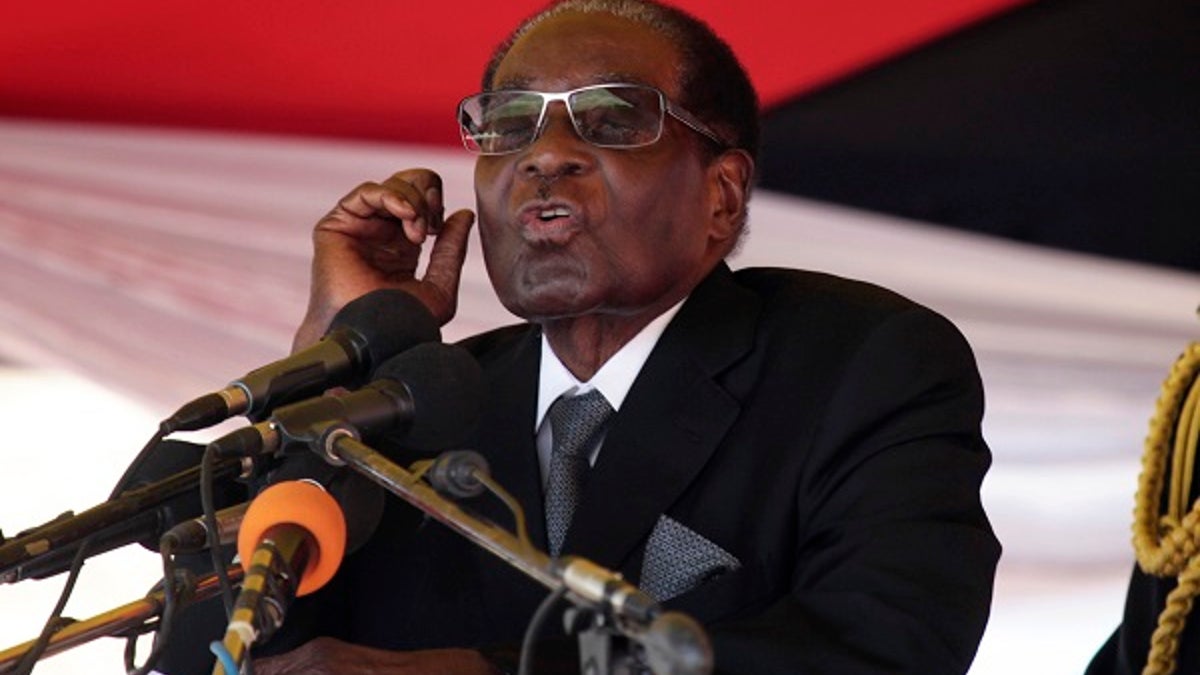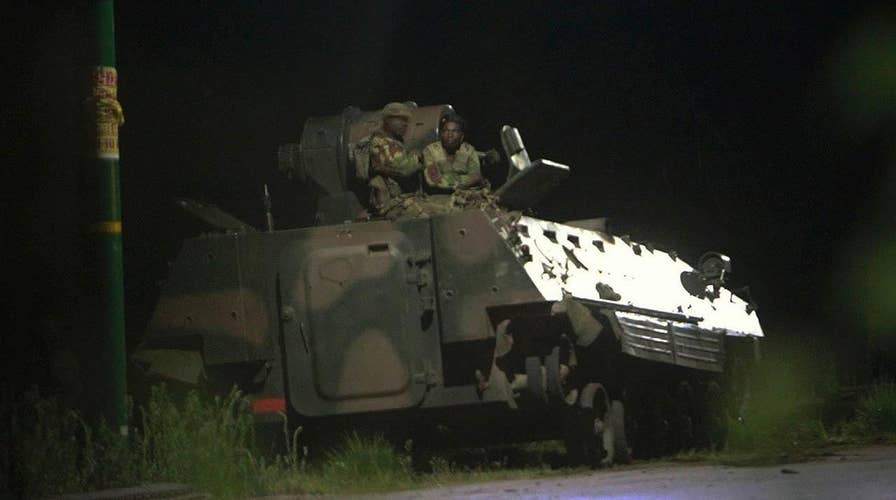US citizens in Zimbabwe told to shelter in place
Amy Kellogg reports on the ongoing political uncertainty.
The U.S. Embassy in Zimbabwe urged American citizens to "shelter in place" early Wednesday as troops were seen in the streets of the capital amid rising political turmoil surrounding the country's 93-year-old president, Robert Mugabe.
The message from the embassy in Harare cited "ongoing political uncertainty through the night" and added the embassy would be closed to the public on Wednesday. The British embassy issued a similar warning, citing "reports of unusual military activity."
Shortly after the embassy statements, Zimbabwe's army sought to reassure the country that "this is not a military takeover" and that while Mugabe was safe and sound, the military was targeting "criminals around him" who have sent the nation spinning into economic despair.
The army took control of the state Zimbabwe Broadcasting Corporation late Tuesday and an army spokesman made the statement on air early Wednesday.
"As soon as we have accomplished our mission, we expect that the situation will return to normalcy," the army spokesman said, calling on churches to pray for the country.

Robert Mugabe, 93, has ruled Zimbabwe since the end of white-majority rule in 1980. (Copyright 2017 The Associated Press. All rights reserved.)
It was not clear where Mugabe and his wife were early Wednesday. "Their security is guaranteed," the army statement said. The president reportedly attended a weekly Cabinet meeting Tuesday.
"We wish to make it abundantly clear that this is not a military takeover," the army statement said. "We are only targeting criminals around (Mugabe) who are committing crimes that are causing social and economic suffering in the country in order to bring them to justice."
Overnight, The Associated Press saw armed soldiers assaulting passers-by in Harare, as well as soldiers loading ammunition near a group of four military vehicles. The explosions could be heard near the University of Zimbabwe campus. The developments came several hours after the AP saw three armored personnel carriers in a convoy heading toward an army barracks just outside the capital.
Mugabe last week fired Vice President Emmerson Mnangagwa and accused him of plotting to take power, including through witchcraft. Mnangagwa, who enjoyed the military's backing and once was seen as a potential president, fled the country and said he had been threatened. Over 100 senior officials allegedly supporting him have been listed for disciplinary measures by a faction associated with Mugabe's wife, Grace.
The first lady appeared to be positioned to replace Mnangagwa as one of the country's two vice presidents at a special conference of the ruling party in December, leading many in Zimbabwe to suspect that she could succeed her husband. Grace Mugabe is unpopular with some Zimbabweans because of lavish spending as many struggle, and four people accused of booing her at a recent rally were arrested.
On Monday, army commander Constantino Chiwenga issued an unprecedented statement saying purges against senior ruling ZANU-PF party officials, many of whom like Mnangagwa fought for liberation, should end "forthwith."
"We must remind those behind the current treacherous shenanigans that when it comes to matters of protecting our revolution, the military will not hesitate to step in," the army commander said. The state-run broadcaster did not report on his statement.
Showing a generational divide, the ruling party's youth league, aligned with the 52-year-old first lady, on Tuesday criticized the army commander's comments, saying youth were "ready to die for Mugabe."
On Tuesday night the ruling party issued a statement accusing the army commander of "treasonable conduct," saying his comments were "clearly calculated to disturb national peace and stability" and were "meant to incite insurrection."
Frustration has been growing in once-prosperous Zimbabwe as the economy collapses under Mugabe. The country was shaken last year by the biggest anti-government protests in a decade, and a once-loyal war veterans association turned on the president, calling him "dictatorial" and blaming him for the economic crisis.
"Mnangagwa was held out by many as the best hope within ZANU-PF for piloting an economic recovery," analyst Piers Pigou with the International Crisis Group wrote Tuesday.
Now, "Mugabe will have to employ all his guile if he intends to ensure continued accommodation with the armed forces."
Mugabe in the past has warned military commanders from interfering in succession politics. "Politics shall always lead the gun, and not the gun politics. Otherwise it will be a coup," he told supporters in July.
The Associated Press contributed to this report.

